Table of Contents
Use of the Article:
A, An and The are called Articles. A and An are called Indefinite Articles because they do not refer to any particular or definite person, place or thing; as, an umbrella; a pen; etc.
The is called the Definite Article because it always points out some particular object; as,
- The umbrella I had is stolen.
- The pen you lent me is lost.
Uses of ‘A’ and ‘An’:
A is used-
(1) Before a word beginning with a consonant; as, a tiger, a man, a table, a dozen; etc.
(2) Before a word beginning with ‘u‘ or ‘eu‘ giving the consonant sound of ‘you‘; as a European, a useful method, a University, a Unique chance, a Utensil.
(3) Before a word beginning with ‘o‘ giving the consonant sound ‘wa‘; as a one-eyed barber; a one-rupee note.
(4) Before a word beginning with ‘h‘ when this letter is sounded; as, a hero, a hospital, a history, a hundred; etc.
An is used-
(1) Before a word beginning with a vowel sound; as an apple, an engine, an inkpot, an orange, an umpire.
(2) Before a letter (used as short form of a word) beginning with a consonant having a vowel sound; as, an M.A., an M.L.A.; an M.B.B.S. but a Matric, a B.A.
(3) Before a word beginning with a silent ‘h‘; as an hour, an honest man, an heir-apparent, etc.
(4) Before a word beginning with ‘h’ (sounded) with an accent on the second syllable; as, an historical novel, an hotel.
Uses of ‘The’:
(A) The Definite Article The is used-
(1) Before a word denoting a particular person or thing or one which is well known, already mentioned or immediately to be introduced; This is the pen that you gave me. Let us go to the cinema (the cinema hall of our town). We met the Home secretary.
(2) Before a Common Noun in the singular to denote a class or kind; as The rose is the queen of all flowers. The camel is the ship of the desert. The lion is the king of the jungle. The pen is mightier than the sword.
Note- No Article is placed before Man or Woman used in a general sense; as Man is mortal. Woman is vain.
(3) Before the names of the following-
(I) Seas, rivers, gulfs, canals, deserts, winds, bays, mountain ranges (but not a single mountain or peak), groups of islands (but not a single island); as, The Red Sea, the Ganges, the Persian Gulf, the Suez Canal, the Sahara, the Straits of Malacca, the Trade Winds, the Bay of Bengal, the Himalayas, the Andamans.
But we say- Mount Everest, Sicily.
(II) Ships, newspapers, journals, books, historical buildings; as The Raj Hans, the Hindustan Times, the Shankar’s Weekly, the Koran, the Gita, the Taj.
But we say- Lord Krishna’s Gita, Tagore’s Gitanjali.
(III) Natural phenomenons, seasons, directions, etc.; as, The winter, the South, the East, the sky, the hills, the Sun, the Moon, the Earth etc.
(IV) Places or countries formed of compound words or derived from proper names; as, the UP, the USA, the Deccan etc.
(V) A nation or a community; as The English, the French, the Hindus, the Sikhs, etc.
(4) Before a proper Adjective followed by Noun when the Noun requires an Article; as, the Madras Government, the Indian soldier.
But we say- Kashmir Silk, Burma rice. Silk and rice are Material Noun and ordinarily, they do not require any article.
(5) Before an Adjective when the Noun is understood; as, The rich should help the poor.
Note- The placed before an Adjective forms a Noun in Plural Number. ‘The rich‘ means ‘the rich people‘.
(6) Before Superlatives followed by a Noun; as, He is the best player. Even the darkest cloud has a silver lining in it.
(7) Before Adjectives of Positive Degree having the force of the Superlative; as Pt. Nehru is the leader (the greatest leader). That is the way to do it (the best way).
(8) Before Adjectives in the Comparative degree, when selection is meant; as, Rahim and Rashid are friends; Rahim is the abler of the two.
(9) Before Pairs of Comparative Adverbs in parallel clauses as, The more, the merrier. The more he worked the more intelligent he grew.
(10) Before a Common Noun to give it the meaning of a Abstract Noun; as, The mother in her (the motherly feelings in her) made her protect her children. We must drive out the coward (cowardice) in us. The warrior (the material spirit) in Alexander made him wage war after war.
(11) Before a Proper Noun used as a Common Noun; as The India of today is making rapid progress. Kalidas is the Shakespeare of India (Kalidas is as great a dramatist as Shakespeare). He is the Newton of our class. Before all sorts of Nouns when they are used in a particular or special sense: as The salt of Sambar is very cheap, The water of lake Dal is dirty.
(12) Before a Common Noun, as a substitute for the Possessive Pronoun; as He gave me a blow on the head (my head). Death stared him in the face (his face).
(13) Before a Noun to lend it emphasis; as, He is punctual to the minute. He carried out my orders to the letter.
(14) Before the Adjective same and after the Adjectives all and both; as, This is the same boy that stole my pen. All the boys were absent. Both the brothers were present.
(B) (I) When two or more Adjectives qualify the same, Noun, the Article is placed before the first Adjective only; as, A black and white cow is grazing in the field (Only one cow, partly black and partly white).
(II) When two or more Adjectives refer to different Nouns, the Article is used before each Adjective; as, A black and a white cow are grazing in the field (Two cows, one black and the other white).
(C) (I) When two or more Nouns denote the same person or thing, the Article is placed before the first only; as, Lord Clive was a soldier and statesman (One person who was both a soldier and a statesman).
(II) When two or more Nouns denote different persons or things, the article is placed before each Noun; as, They were a poet and a warrior (Two persons, one poet and the other warrior).
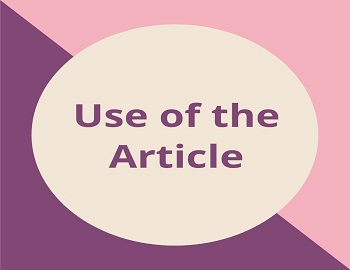
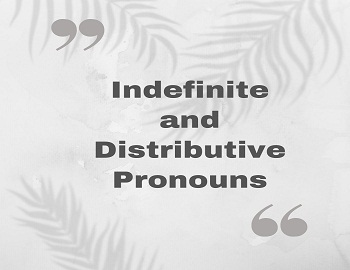



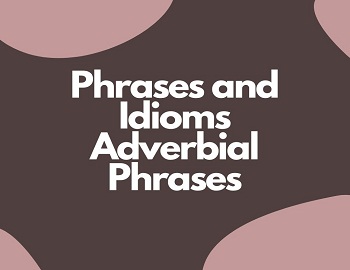
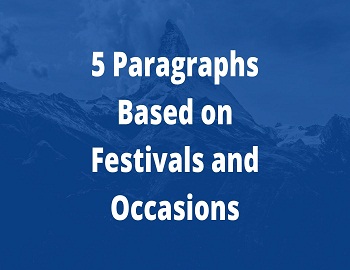
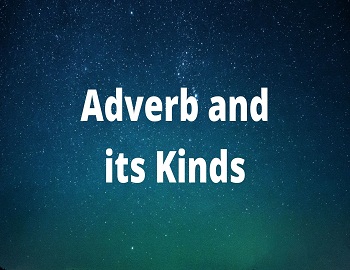

Comments (No)